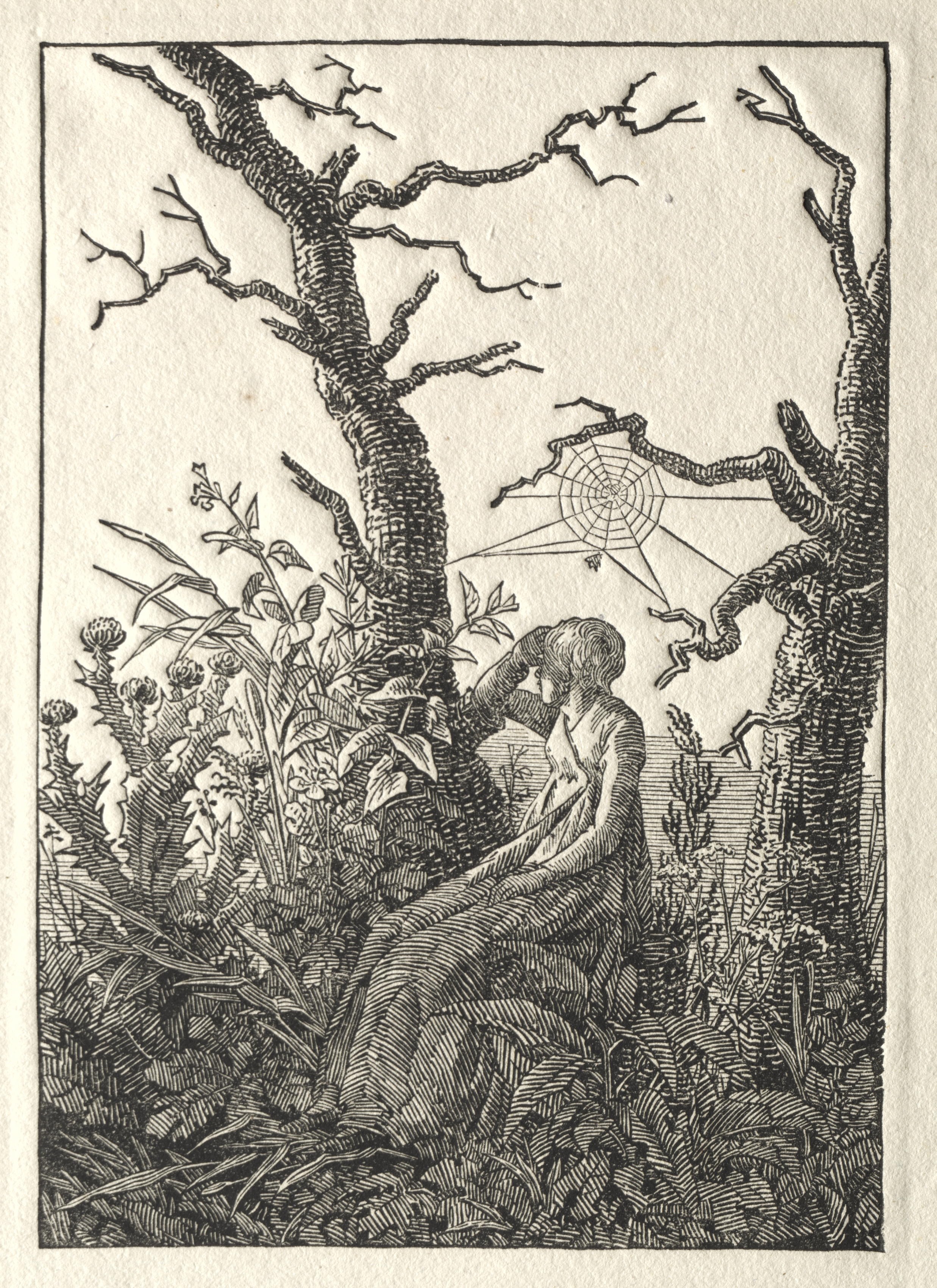Trans-IT-ioning

Caspar David Friedrich:
The Woman with the Spider Web between Bare Trees (1803)
" … deferring arrival into our future together …"
©2022 by David A. Schmaltz - all rights reserved
The Muse retired three days ago, but because we haven't arrived back at The Villa Vatta Schmaltz yet, she's still Trans-IT-ioning into whatever she will next become. The traveling days serve as a buffer, allowing us both to try on fresh identities, and I say "us both" because while she's retired, my role changes, too. One cannot change any element within a tightly-bound system without also effecting every other piece, and our relationship's no exception. The Invisible Husband might not have retired, but his role significantly shifted with The Muse's. I think it a significant blessing that we're sort of dawdling our way back home, since it provides an opportunity to stumble across a fresh identity or two and try them on along the way. These things take time.
We visited The Golden Spike National Monument on our way through Utah, perhaps a premise to extend our Trans-IT-ioning, but a worthwhile one. The significance of that event, the joining of the two parts of the transcontinental railroad, cannot be overstated. It was, true enough, just a start, but it shifted what was formerly impossible into the realm of the everyday occurrence. The rails for the western part of the work, were manufactured in the East and shipped via steamship around South America to the West. Ditto with the spikes and, indeed, the locomotives, a process that took at least six months per load. There were many, many loads! Once the railroad was finished, that same trip, via completed railroad, would take a week. That quantum improvement utterly transformed the nation.
Such shifts do not happens in one fell swoop. They occur by the inch and the pebble, accumulating momentum and mass until they become the difference pursued, or, often, much different than anyone presumed. The railroad changed much more than transportation, but the surrounding civilization, too, for it needed working water wells separated at most by thirty miles for the water a steam engine requires. These wells spurred towns into existence. The country remains spotted with the remains of little towns founded to service trains which no longer run, the Trans-IT-ioning continuing. Every ten miles, a siding appeared and along with it, a small need for services, which attracted people. Some great cities resulted, but most became ghost towns or close to it as the technology came to no longer require whatever service they provided. The present landscape's spotted with towns the railroad retired.
Obsoleting only occurs within some specific context. Skills no longer required in one realm might well transition into any one of many others, the choices approaching the infinite. The chief dilemma and the drama tends to come from choosing which one (or ones) to apply those disconnected skills. A period of Trans-IT-ioning normally occurs during which indecision remains a benefit, the nothingness refreshing in its difference. But resolution cannot be properly deferred forever. One must have made choices and decided before too much momentum's lost. Once The Muse and I arrive home, the pressure will increase to decide just who we've become and get on with perfecting that. Fact is, we largely suspect who we'll become after Trans-IT-ioning, and we're justifiably hesitant to jump right into those new identities which won't even seem like us for the longest time. Until then, we inhabit an essential adolescence, where we can still make snap a decision to visit The Golden Spike and thereby deferring arrival into our future together for another half day, Trans-IT-ioning all the way home.


